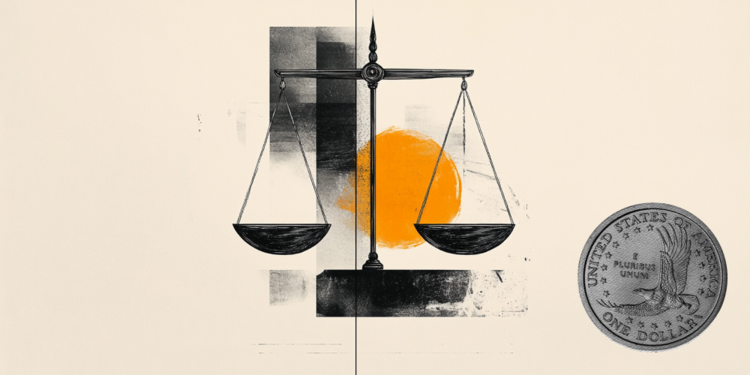President Luiz Inácio Lula da Silva (PT) is visiting China at a delicate moment from a geopolitical point of view, especially considering Brazil’s ambiguous position regarding the war in Ukraine.
Lula was preceded by the presidents of France, Emmanuel Macron, and of the European Commission, Ursula von der Leyen, who met with Xi Jinping in Beijing on Thursday (5).
Like the Brazilian president, these two European leaders are also interested in re-energizing economic relations with China, after three years of lockdown that slowed down Chinese activity and prevented face-to-face contacts. Macron traveled with 50 businessmen and new trade agreements were negotiated.
But there is a fundamental difference in relation to the Brazilian attitude towards China. France, in particular, and the European Union, in general, have provided substantial political, military, financial and humanitarian support to Ukraine, and have imposed heavy sanctions against Russia for unprovoked aggression.
Macron and Von der Leyen have been demanding at the UN and elsewhere for the withdrawal of Russian forces.
The rapprochement with China was presented by Macron and Von der Leyen as an incentive for the Chinese government not to provide military aid to Russia and pressure Vladimir Putin to leave Ukraine.
China abstained from UN votes that condemned the invasion of Ukraine, while Brazil voted in favor in almost all cases. This is an important difference.
However, the 12-point plan proposed by Xi, as well as statements by the Brazilian government, do not call for the withdrawal of Russian forces from Ukraine as a precondition for a peace negotiation.
Standing beside Xi after the bilateral meeting, Macron declared: “Aggression in Ukraine has dealt a blow to international stability. I know I can count on you to bring Russia to its senses and the whole world to the negotiating table.”
According to Reuters, France and China agreed on the need to exclude the use of nuclear weapons from the conflict – a reiterated threat from Putin.
Still, Macron and von der Leyen were criticized for the visit, just two weeks after Xi reinforced the “unbounded partnership” and signed 14 agreements with Putin in Moscow.
For the critics, a visit like this would have to be framed by clear threats, even if in the economic field, for China, if it maintains or increases its support for Russia.
Bilateral trade between the two countries grew 30% last year, reaching US$ 190 billion. China bought $50.6 billion worth of crude oil from Russia from March to December, up 45% from the same period a year ago.
Coal imports rose 54% to $10 billion. Purchases of natural gas, including piped and liquefied gas, surged 155% to $9.6 billion.
Half of the oil sold by Russia is bought by China – and another 20% by India; 40% of the oil consumed by China is Russian. The energy that Russia stopped selling to Europe was shifted to these two Asian giants, which benefited from discounts in commodity prices.
India increased its imports from Russia by an astronomical 384% in 2022.
China has been accepting rubles, the Russian currency, and paying with yuan, the Chinese currency, thus helping Russia to circumvent financial sanctions and its exclusion from the Swift system of financial transactions.
Digital currencies issued by central banks, adopted by China, Russia and India, and now also by Brazil, should facilitate these transactions between members of the Brics, without going through the dollar, euro or pounds. All this interests not only Russia but also China, in the context of the intensification of disputes with the United States.
In addition, Chinese companies sold $12 million worth of drones and drone parts to Russia, according to a report by The New York Times, and 1,000 rifles, drone parts and bulletproof vests, according to an investigation by the website. “Political”.
Brazil intensifies trade with Russia
Brazil also intensified trade with Russia last year. Imports, mainly fertilizers, increased 38%, to US$ 7.85 billion, in 2022. Brazilian exports to Russia grew 23%, to US$ 1.96 billion.
At the end of last month, on the eve of what would be Lula’s scheduled trip to Beijing, around 300 Brazilian businessmen were in the Chinese capital, and met with around 200 Chinese businessmen. Trade and investment agreements were signed. Lula ended up having to postpone the trip because of a health problem.
It is undeniable that presidential diplomacy can help remove trade obstacles. Bad relations between former President Jair Bolsonaro (PL) and Xi Jinping did not help when China withheld active pharmaceutical ingredients needed to manufacture the Covid vaccine in Brazil at the height of the pandemic.
The identification of two simultaneous cases of mad cow disease in 2021 led to an almost four-month suspension of imports of Brazilian meat by China – a record. At the beginning of the year, the registration of a case provoked a month-long embargo, lifted on March 23, a week before Lula’s initially scheduled trip.
However, Brazil needs to bear in mind that strategic technologies, which involve semiconductors (chips) and artificial intelligence, for example, are increasingly the target of barriers dictated by geopolitical interests. .
The United States has adopted regulations and an industrial policy designed to deprive China and its companies of these technologies.
Huawei, the Chinese cellphone equipment giant, suffered a 69% drop in its net profit last year because of US and European sanctions. TikTok is being restricted in Western and Asian countries.
President Lula will need to be careful with his words in Beijing if he wants to avoid Brazil being seen as a country that speaks in favor of democracy and sovereignty, but, in practice, allies itself with dictatorships and does not do what it wants range to discourage intrusions.
Source: CNN Brasil
Bruce Belcher is a seasoned author with over 5 years of experience in world news. He writes for online news websites and provides in-depth analysis on the world stock market. Bruce is known for his insightful perspectives and commitment to keeping the public informed.







